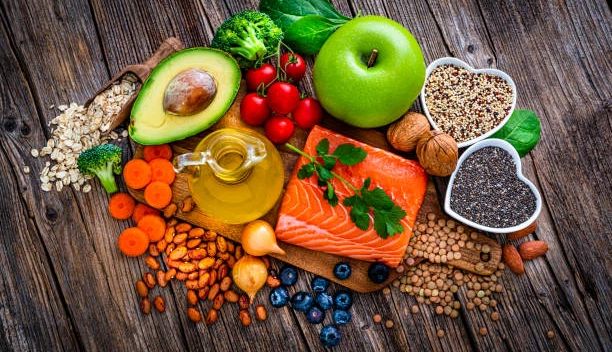High blood pressure—also known as hypertension—is a silent threat to your health. Often showing no symptoms, it can quietly damage your blood vessels, heart, kidneys, eyes, and brain. According to the CDC, nearly 1 in 3 American adults suffers from high blood pressure, putting them at a greater risk for heart disease, stroke, and more.
While medications play an important role in treating hypertension, you don’t have to rely solely on prescriptions. Adopting natural strategies to lower blood pressure can enhance your health outcomes and often reduce the need for higher medication dosages. Dr. Pavandip Virdi, a Family Medicine Physician at Bayhealth, emphasizes that “small lifestyle changes can lead to big improvements in blood pressure.”

1. Eat a Heart-Healthy Diet
Load Up on Fruits and Vegetables
Fruits and vegetables are rich in potassium and magnesium, two key nutrients that help regulate blood pressure. Potassium helps your body get rid of excess sodium and relaxes blood vessel walls, which leads to better blood flow.
Top potassium-rich foods:
- Bananas
- Potatoes
- Watermelon
- Avocados
- Spinach
- Sweet potatoes
Focus on the DASH Diet
The DASH (Dietary Approaches to Stop Hypertension) diet is a clinically proven eating plan focused on:
- Low saturated fat and cholesterol
- Plenty of whole grains, fruits, and vegetables
- Lean proteins like chicken, fish, and beans
People following the DASH diet have been shown to reduce their systolic blood pressure by 8–14 mm Hg, a significant improvement.
2. Cut Down on Sodium
Americans consume, on average, more than 3,400 mg of sodium daily—well above the recommended amount.
Sodium Guidelines
The American Heart Association recommends:
- Ideal: Less than 1,500 mg/day
- Acceptable: Up to 2,300 mg/day
Easy Ways to Reduce Sodium:
- Limit processed foods (canned soups, snacks, frozen meals)
- Cook at home using fresh ingredients
- Use herbs and spices instead of salt (try garlic, lemon, or rosemary)
3. Exercise Regularly
Exercise is one of the most effective ways to naturally lower blood pressure. It strengthens the heart, improves circulation, and helps maintain a healthy weight.
How Much Is Enough?
Aim for at least 150 minutes of moderate aerobic activity per week—about 30 minutes per day, 5 days a week.
Best Exercises to Lower Blood Pressure:
- Brisk walking
- Biking
- Swimming
- Dancing
- Gardening or yard work
Moderate exercise should raise your heart rate, make you breathe heavier, and possibly sweat—but you should still be able to hold a conversation.
4. Limit Alcohol and Caffeine Intake
Alcohol and Blood Pressure
While light to moderate drinking might have heart benefits for some, too much alcohol raises blood pressure and negates those benefits.
Alcohol Guidelines:
- Women: 1 drink/day
- Men: 2 drinks/day
Caffeine in Moderation
Caffeine can cause a temporary spike in blood pressure, especially in people who are sensitive to it. If you notice your BP rising after coffee, consider reducing your intake.
5. Manage Stress Effectively
Chronic stress contributes to high blood pressure, especially when it leads to poor habits like emotional eating, smoking, or drinking alcohol.
Deep Breathing and Mindfulness
Deep breathing exercises have been shown to:
- Reduce systolic and diastolic blood pressure
- Lower heart rate
- Increase feelings of calm
Try box breathing: Inhale for 4 seconds, hold for 4 seconds, exhale for 4 seconds, and hold again for 4 seconds. Repeat for several minutes daily.
Additional Stress-Reduction Techniques
- Yoga or tai chi
- Journaling
- Listening to calming music
- Talking with a friend or therapist
Bonus Tip: Maintain a Healthy Weight
Even modest weight loss—just 5 to 10 pounds—can have a meaningful impact on your blood pressure. Diet, exercise, and stress management all contribute to weight loss and better cardiovascular health.
FAQs:
Q1: How fast can I lower my blood pressure naturally?
A: Some people see improvement within a few days to weeks after changing diet and increasing physical activity. However, long-term consistency is key.
Q2: Can I completely stop taking blood pressure medications if I follow these natural methods?
A: Always consult your doctor before adjusting any medication. While some people may reduce or eliminate medications, others may still need them alongside lifestyle changes.
Q3: What foods should I avoid to reduce blood pressure?
A: Avoid high-sodium foods like canned soups, deli meats, salty snacks, and fast food. Also limit sugary drinks and high-fat processed foods.
Q4: Is coffee bad for people with high blood pressure?
A: It depends on your sensitivity. Some people can tolerate caffeine well, while others may experience a spike in blood pressure. Monitor your response and adjust accordingly.
Q5: Does weight loss lower blood pressure?
A: Yes, losing even a small amount of weight can significantly lower your blood pressure, especially around the waistline.




